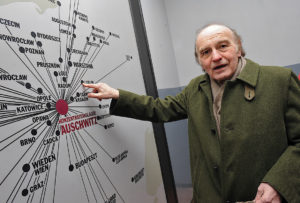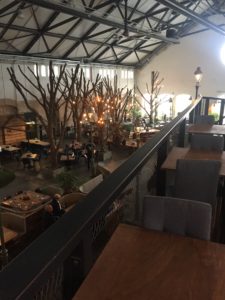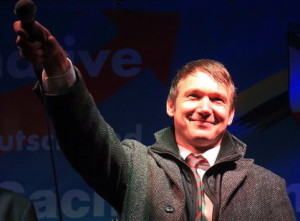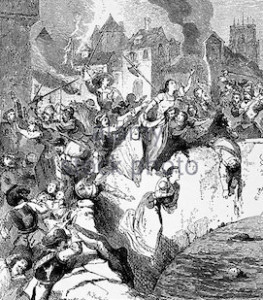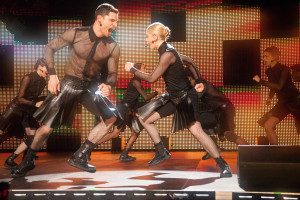 A recent article in The Atlantic points to an interesting aspect of current US culture and lifestyle. It is entitled “The logic of the ‘9 to 5’ is creeping into the rest of the day” and points to “how free time gets conscripted into the service of work”. The author sees evidence in a slew of TikTok videos on the “5 to 9 after the 9 to 5,” namely vloggers documenting their routines after work, from 5 to 9 p.m. According to the article, “some creators also make a morning version, the ‘5 to 9 before the 9 to 5,’ starting at 5 a.m. These routines are highly edited [and] have big to-do-list energy; the satisfaction they offer is that of vicariously checking boxes”. In being a predictable routine carried out in order at specific times, the highly organized evening or early morning activities seem to echo work culture:
A recent article in The Atlantic points to an interesting aspect of current US culture and lifestyle. It is entitled “The logic of the ‘9 to 5’ is creeping into the rest of the day” and points to “how free time gets conscripted into the service of work”. The author sees evidence in a slew of TikTok videos on the “5 to 9 after the 9 to 5,” namely vloggers documenting their routines after work, from 5 to 9 p.m. According to the article, “some creators also make a morning version, the ‘5 to 9 before the 9 to 5,’ starting at 5 a.m. These routines are highly edited [and] have big to-do-list energy; the satisfaction they offer is that of vicariously checking boxes”. In being a predictable routine carried out in order at specific times, the highly organized evening or early morning activities seem to echo work culture:
Given how many of these videos are made by people in their early 20s, I see in them a new generation entering the workforce and acclimating to the reality that time is limited. But in attempting to take control back from their jobs, many 5-to-9 video creators end up reproducing a version of the thing they are trying to distance themselves from. If you clock out, go home, and continue checking things off a list, you haven’t really left the values of work behind.
The article provides examples of the must-do activities chronicled in the TikTok videos, such as taking a shower, exercising, cooking a meal, cleaning up, etc. Of course, we also need to add to the list social media posting. The author, Julie Beck, points out that typically missing from the list of activities is socializing in person and in real time, reflecting a trend in the US of time spent alone (see my recent post). That reflects as well eating out trends with more and more Americans getting take-out or delivery rather than eating in a restaurant. I was in Europe this summer and in both France and Germany I experienced a very different restaurant culture – take out was widely available but the cafes and restaurants were full (especially those outdoors) with few people eating alone.
The idea that non-work time also needs to be “productive,” is a likely reflection of living in a capitalist society in which work tends to shape personal identity, as pointed out in the article: “For many Americans, work is the focus of life, the place to find purpose and a sense of self.” That is very different in other cultures, and used to be in the US as well, as Beck points out: “It wasn’t always this way. In much of the 19th and early 20th centuries, the view was that leisure was the place where we would find the best things in life.” In other cultures, leisure time is still disconnected largely from the work world, a time to relax, refresh, and socialize. A German saying points to that divide: “Dienst ist Dienst und Schnaps ist Schnaps” (Work is work and schnaps [hard liquor] is schnaps), meaning that at work we focus on work (and don’t prioritize socializing) but after work we enjoy ourselves, i.e. drink with friends and divorce completely from work. At the same time, US cultural trends tend to spread and in other parts of the world (including Germany), the work world (through electronic connectivity) is creeping into leisure and family lives.
Beck ends her article with this thought:
What would need to happen for people to experience their leisure as being in no way connected to labor? Certain policies might make work less central to people’s lives: universal basic income, for example, or a four-day workweek. But the experts and philosophers of leisure would suggest that a collective mindset shift is also required.
That is a tall order and particularly a hard sell under an administration in which hands-off capitalism reigns supreme (see for example no regulation on AI or crypto currency companies). The author cites Jenny Odell’s book Saving Time, “Leisure time is an interim means of questioning the bounds of the work that surrounds it. Like a stent in a culture that can’t stand what looks like emptiness, it might provide that vertical crack in the horizontal scale of work and not-work, where the edges of something new start to become visible.” That kind of experience is unlikely to be found in a packed schedule: “True leisure,” Odell writes, “requires the kind of emptiness in which you remember the fact of your own aliveness.”
Achieving “emptiness” or celebrating “aliveness” are not likely to be something TikTok videographers will be adding to their 5 to 9 videos.



